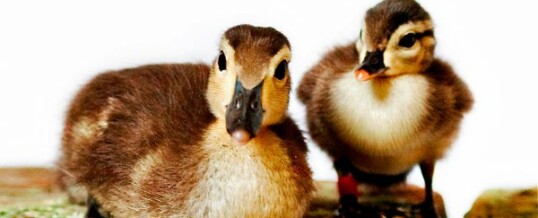
Congratulations to graduate student, Sydney Hope, who received the Best Student Poster award at the Society for Integrative and Comparative Biology Annual Meeting in the Division of Animal Behavior. The conference was held January 3-7, 2016 in Portland, Oregon. Sydney presented a poster entitled, “The effect of incubation temperature on Wood Duck duckling behavior”, which described the results from her most recent project. She found that ducklings incubated at an intermediate incubation temperature tend to exhibit shier behaviors than those incubated at a colder or warmer temperature. This finding has implications for understanding the evolution and development of behavior, and has implications for climate change and human disturbance, which affect incubation temperature in the wild.

Sydney Hope
Abstract:
Incubation temperature is a critical parental effect that influences offspring quality in egg-laying animals. Unlike most other oviparous species, avian parents regulate incubation temperature through behavior, allowing parents to shape offspring phenotype. For cavity nesting wood ducks (Aix sponsa), slight temperature changes (<1°C) affect duckling morphology and physiology, but it is unknown whether incubation temperature affects offspring behaviors that may be crucial to survival. To investigate this, we incubated wood duck eggs at three different temperatures (35, 35.8, 37°C) and assessed duckling behavior with multiple repeated behavioral trials between 1-15 days post-hatch. We found that incubation temperature affected several behavioral traits. On day 1, fewer ducklings incubated at the lowest temperature successfully exited a nest box in response to wood duck hen call recordings compared to those incubated higher temperatures, which would likely lead to abandonment by the mother in the wild. Additionally, ducklings incubated at the lowest temperature spent more time calling while alone in an unfamiliar environment and were more likely to emerge from a shelter into an unknown environment than those incubated at higher temperatures. These behaviors may help maintain close associations between the mother and her offspring, but may also increase predation risk. Our study provides evidence that the early developmental environment has an effect on avian neonate behavior and offers insight into how non-genomic factors may provide directional selective pressure for behaviors important to early survival.
Share
MAR
2016
